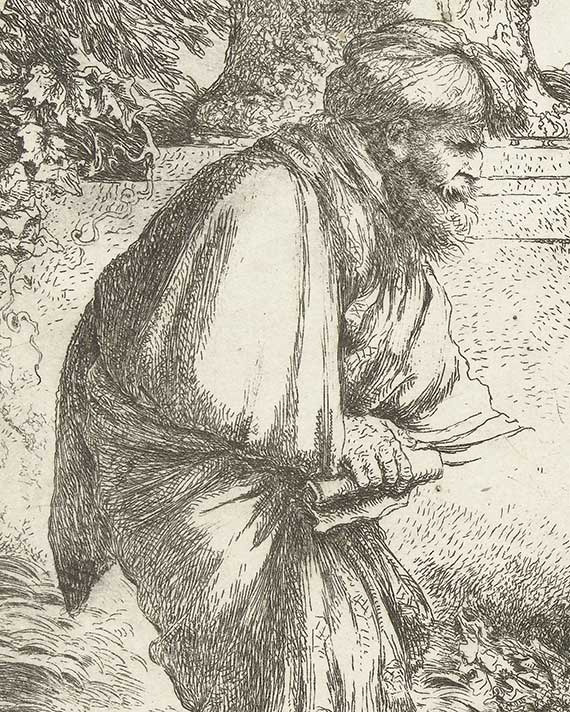
Rijksmuseum

Rijksmuseum
Miscellany
The astronomer and mathematician Thales of Miletus is believed to have been the first ancient Greek scholar to discuss the phenomenon of magnetism. Aristotle notes in On the Soul that Thales held the belief that “the magnet has a soul in it because it moves the iron.” Five and a half centuries later, Diogenes Laërtius concurred with Aristotle, observing that Thales “attributed a soul or life even to inanimate objects.”
Miscellany
After he was captured by pirates, Diogenes of Sinope was sold as a slave to Xeniades, who had the Cynic philosopher educate his sons. “At home he taught them to attend to their own needs,” writes Diogenes Laërtius in his Lives of the Eminent Philosophers, “to live on plain food and water, to wear their hair short and unadorned, to go barefoot and without a tunic, and to be silent and keep their eyes lowered when walking in the streets.”
Miscellany
In his Lives of the Eminent Philosophers, Diogenes Laërtius tells of Socrates’ disciple Aristippus, who “derived pleasure from what was present, and did not toil to procure the enjoyment of something not present.” Such opportunism was not widely admired; Aristippus was sometimes called “the king’s poodle.”
Miscellany
According to Diogenes Laërtius’ third-century Lives and Opinions of the Eminent Philosophers, Plato was applauded for his definition of man as a featherless biped, so Diogenes the Cynic “plucked the feathers from a cock, brought it to Plato’s school, and said, ‘Here is Plato’s man.’ ” When asked about the origin of his epithet, cynic deriving from the Greek word for dog, Diogenes replied that it was given to him because he “fawns upon those who give him anything and barks at those who give him nothing.”